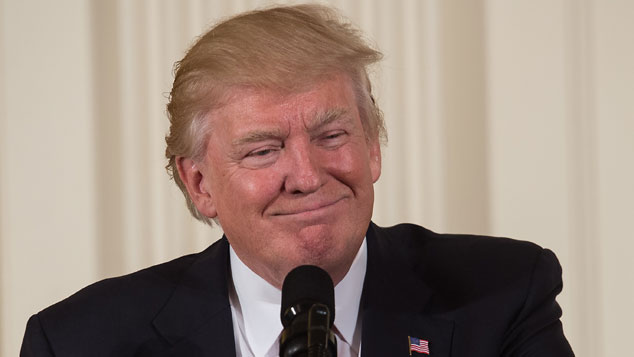
The US president was going to send the US dollar to ever-higher peaks of glory.
His protectionism, inflationism, and generally macho attitude were going to pump the American currency full of steroids until it was the “bigliest” winner – the only winner – left standing in a bloodied FX arena littered with losers.
And as is usually the case, when everyone thinks that something is bound to happen, the opposite does…
The market is the world’s most effective cure for hubris
The base cunning of the market knows no bounds.
It doesn’t matter how logical your thesis is. It doesn’t matter how sensible it sounds. It doesn’t matter that you can’t envision any scenario in which it could be wrong. If everyone else agrees with you, then the market is going to slap you all in the face as hard as it possibly can.
It’s just the way it works. Why? You could argue the toss for ages. But my take is that the market prices in the odds of a given outcome, driven by largely sensible betting. Then the Johnny-Come-Latelys drive it to a point where it’s over-exaggerating a given outcome.
As a result, the people who got in early feel like investment geniuses, fall in love with the trade and stick with it or even double up as they get greedy. Eventually the trade is so overpriced that any hint that it won’t turn out the way it’s supposed to sends the whole thing tumbling back down again.
Hence the disappointment with the strong US dollar trade.
Emerging-market currencies have had an absolutely blinding 2017 so far. That shouldn’t have happened. By now, Mexico was meant to be tucked away behind the Great Wall Mark II, and the surging dollar should have triggered a good old-fashioned emerging-markets crisis.
But no – not yet at least. Instead, notes the FT, the dollar has struggled, while some emerging market currencies – specifically the Mexican peso – are now up by more than 10% for the year. The Russian rouble is up by more than 8%.
Even the likes of the South African rand – with its very public political problems – has had a good year. In all, “seven of this year’s ten strongest currencies against the dollar are from emerging markets”.
It’s partly down to the faltering of the “Trump trade”. What with the healthcare bill failing to even go to a vote, markets are starting to lose faith in the president’s ability to “get things done”.
If he doesn’t come up with a plausible tax plan soon – rather than continually tweeting about “big news” – and show signs of being able to get it past his own party, then the whole rationale driving markets higher could be undone.
But it’s not just about the woes of the dollar. It’s also about rising commodity prices and recovering oil prices, which have helped currencies linked to those resources – again, this includes both the rouble and the peso.
Question everything
What’s lesson does this unexpected rebound hold for investors? Question everything. The more certain everyone seems of a given view or outcome, the higher the odds that they’ve missed something that matters.
That’s not because people are stupid. It’s because the more widely held a belief is, and the more passionately it is held (and nothing encourages passion like making money from an idea), the more likely it is that it’s priced into the market.
At that point, you need only find the tiniest flaw in the argument to realise that it could all come crashing down.
Of course, the question now is: can the good times for emerging markets last? My feeling is, yes, it can last – for now at least. Faith in Trumpflation has not been completely lost. The Federal Reserve is talking more hawkishly again (meaning it is trying to persuade the market that it will raise rates faster than they think) and the US dollar has rebounded over the last day or so.
But I don’t think that’ll prove an insurmountable headwind. The latest Bank of America Merrill Lynch survey suggests that a record number of fund managers believe that stocks are overvalued. Of these, the US is considered the most overvalued, whereas emerging markets and Europe are still seen as undervalued.
When investors are that convinced that markets are overvalued, they start looking for catch-up plays. The fact that emerging markets are still considered relatively cheap suggests they have a bit further to go. So stick with your emerging market and resources plays – for the time being.